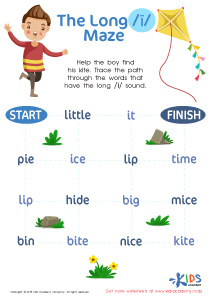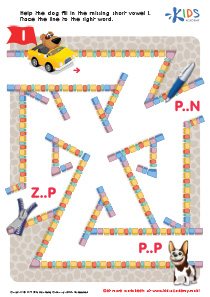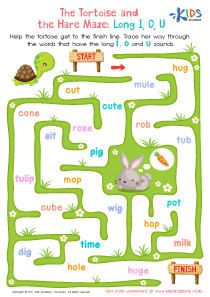Vowel Recognition Extra Challenge Short Vowels Worksheets for Ages 4-6
4 filtered results
-
From - To
Boost your child's foundational reading skills with our "Vowel Recognition Extra Challenge Short Vowels Worksheets for Ages 4-6." Specifically designed for young learners, these engaging activities make mastering short vowels fun and exciting. Each worksheet focuses on identifying and pronouncing short vowels through interactive exercises, vibrant illustrations, and age-appropriate challenges. These worksheets not only enhance vowel recognition but also build essential phonetic skills crucial for early literacy. Perfect for both classroom use and home practice, our vowel worksheets provide a valuable resource to support your child's educational journey. Turn short vowel practice into an enjoyable adventure today!
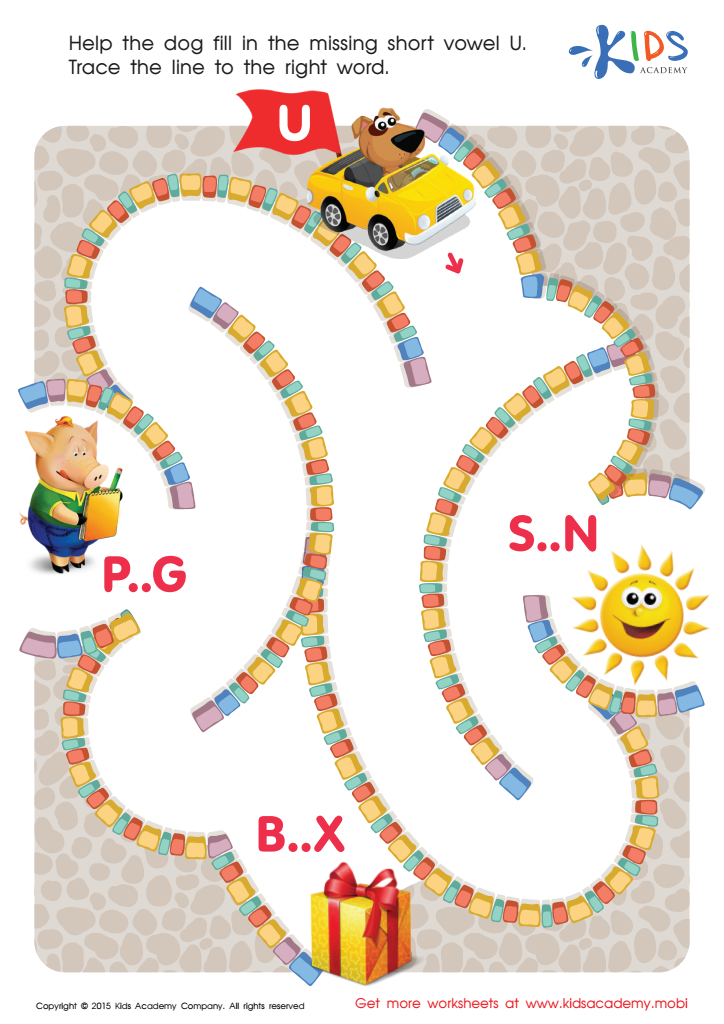

Short Vowel Sound U Worksheet
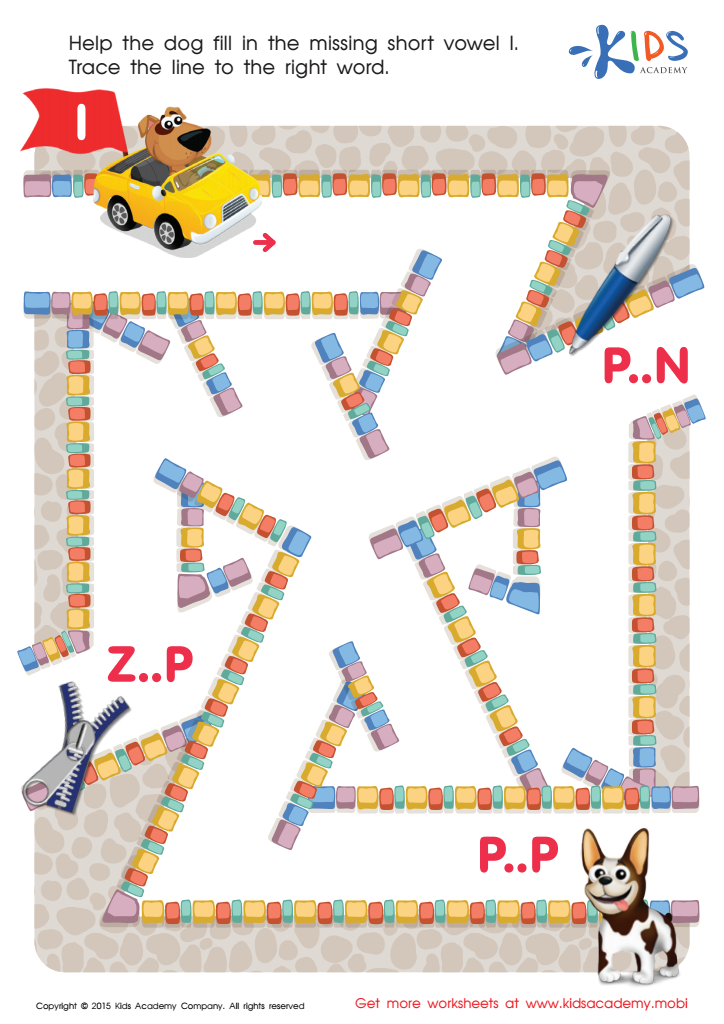

Short Vowel Sound I Worksheet
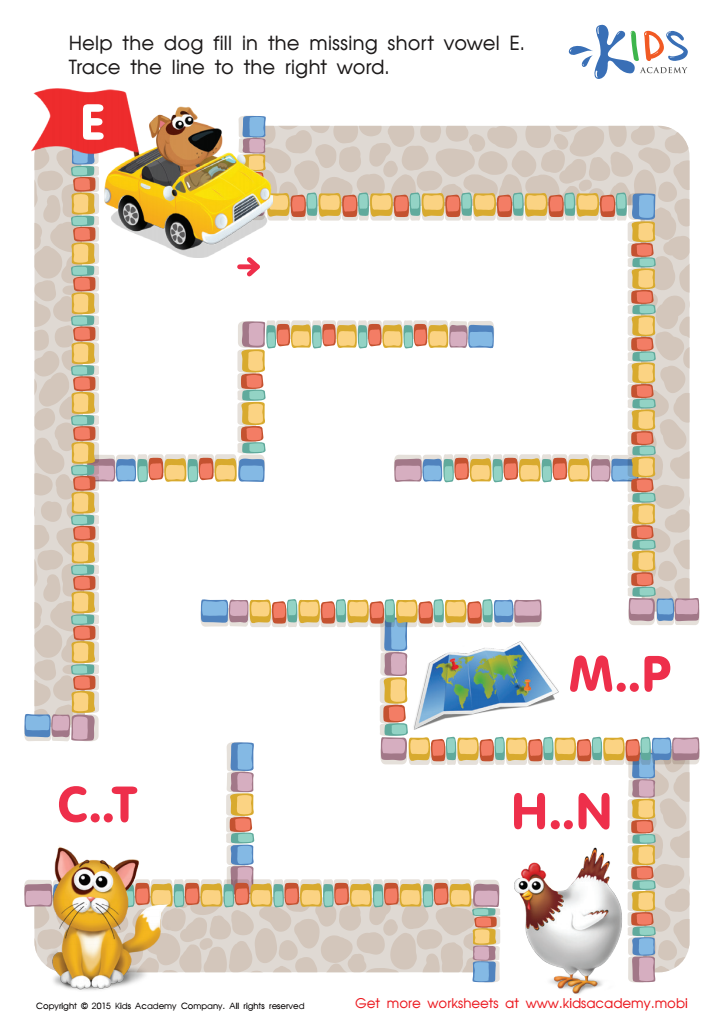

Short Vowel Sound E Worksheet
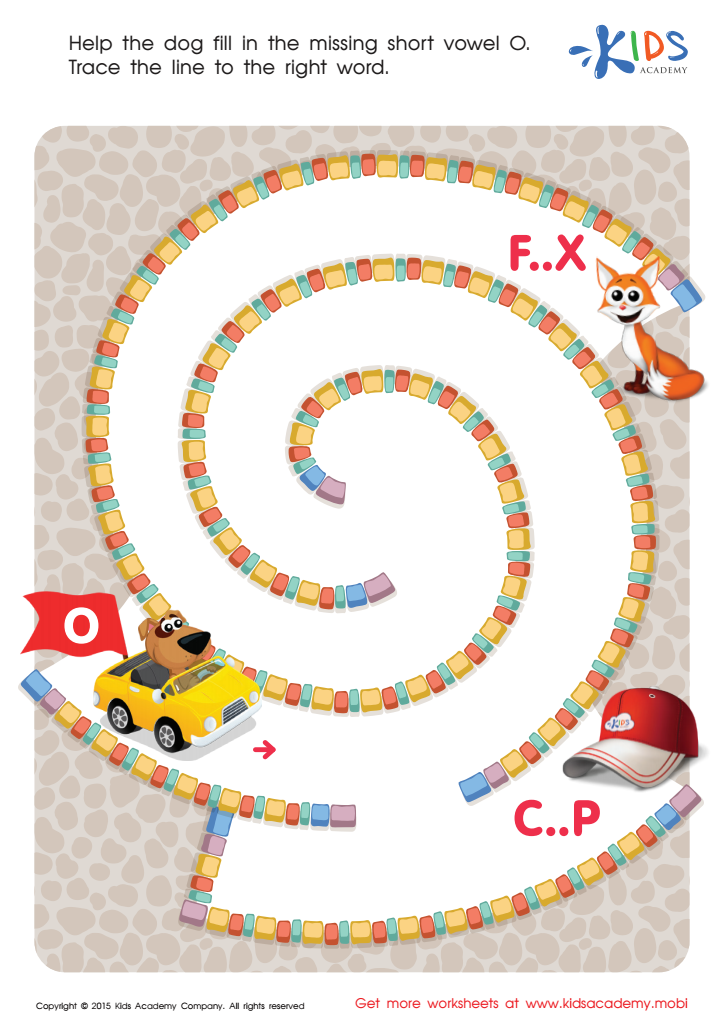

Short Vowel Sound O Worksheet
Vowel Recognition Extra Challenge Short Vowels for ages 4-6 is essential for early literacy development in young learners. Understanding and identifying short vowels— 'a,' 'e,' 'i,' 'o,' and 'u'— forms the foundation for acquiring basic, critical reading skills. These skills include phonemic awareness and phonics, both integral components in proficient reading. Phonemic awareness represents the ability to hear, identify, and manipulate the individual sounds (phonemes) in spoken words, while phonics involves the relationship between sounds and their written letters.
For children aged 4-6, typically in preschool or kindergarten, mastering short vowels enhances their decoding abilities, enabling them to read words accurately and fluently. Early recognition sets the stage for lifelong reading success by making word recognition automatic and reducing cognitive load during reading, allowing young readers to focus more on comprehension.
Teacher and parent involvement in such early literacy challenges can make learning fun and engaging through playful and interactive activities. This partnership boosts children’s confidence, ensuring they associate learning with a supportive and joyful experience. Prioritizing vowel recognition in early education ensures a smoother transition to advanced literacy skills, fostering higher academic achievement and a lasting love for reading.

 Assign to the classroom
Assign to the classroom


